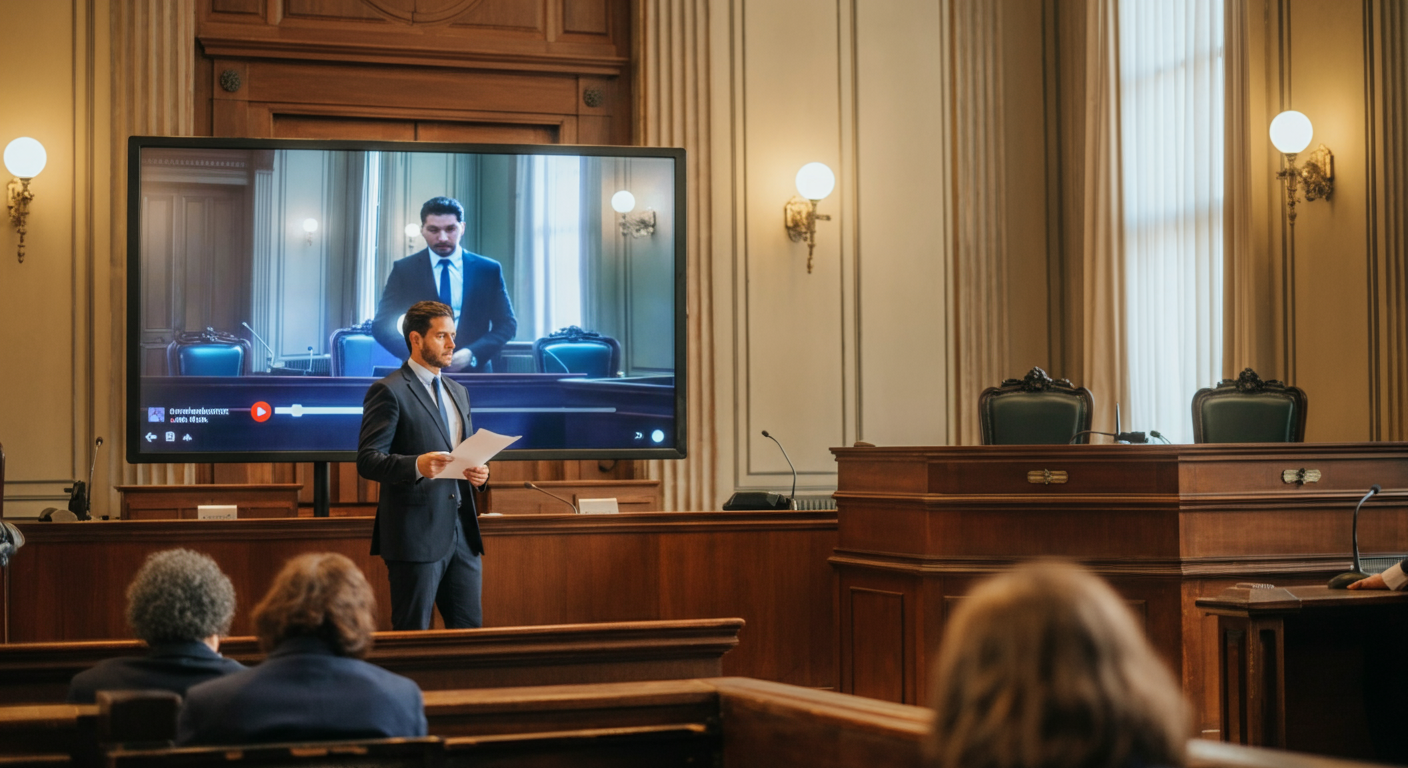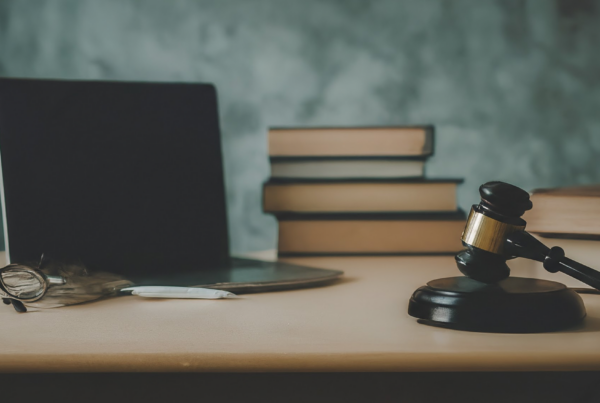In today’s fast-paced world, businesses in the hospitality and entertainment industries, such as casinos, restaurants, and bars, are constantly seeking new ways to enhance their customer experience. One powerful tool at their disposal is commercial video programming. However, as with any business strategy, understanding the legal aspects of commercial video programming is crucial to ensure compliance and avoid potential pitfalls.
Imagine the scene: a bustling restaurant filled with patrons enjoying their meals, all eyes occasionally turning to the screen displaying the latest sports game or music video. This scenario is common, but behind the scenes, there’s a complex web of legal considerations that businesses must navigate. From copyright laws to licensing agreements, the landscape of commercial video programming is intricate and essential for creating an engaging atmosphere that keeps customers coming back.
For multi-location organizations looking for a centralized entertainment solution, the stakes are even higher. Ensuring consistency across locations while adhering to legal obligations can be daunting. That’s where understanding the legal aspects of commercial video programming becomes not just beneficial, but necessary. By delving into these legalities, businesses can protect themselves from financial penalties and enhance their reputation by offering high-quality, legally-compliant content.
In this blog post, we’ll explore the legal aspects of commercial video programming, providing you with the knowledge you need to make informed decisions for your business. From understanding copyright and licensing to navigating complex agreements, we will cover the key points that will help you stay on the right side of the law. So, let’s dive in and uncover the crucial legal considerations that can transform your business’s video programming strategy.
Understanding Copyright and Licensing in Video Programming
In the realm of commercial video programming, understanding copyright and licensing is paramount. These legal frameworks ensure that businesses have the necessary rights to use video content, music, and other media. Failure to comply with these regulations can lead to severe legal penalties and tarnish a company’s reputation.
Copyright laws protect the creators of original works, granting them exclusive rights to use and distribute their content. In the context of video programming, this means that businesses must obtain the appropriate licenses to use copyrighted material legally. Proper licensing not only safeguards against legal repercussions but also enhances the credibility and professionalism of the business.
Types of Licenses and Their Purposes
Securing the right licenses is crucial for any business utilizing commercial video programming. Here are some common types of licenses:
- Synchronization License: This license allows businesses to use music in conjunction with visual media. It’s essential for incorporating background music in videos.
- Master Use License: Required when using a specific recording of a song in a video. This license is obtained from the record label.
- Public Performance License: Necessary for playing music or videos in public spaces, such as restaurants or bars.
- Mechanical License: Allows for the reproduction of music, typically needed when creating physical copies of a video with music.
- Internet License: Required for distributing video content online, ensuring legal compliance across digital platforms.
Each license serves a specific purpose, and obtaining the correct ones is vital for legal compliance and operational success.
Common Licensing Agreements and Legal Issues
Licensing agreements are contracts that outline the terms under which copyrighted material can be used. These agreements typically specify the duration, territory, and type of usage permitted. It’s crucial for businesses to thoroughly understand these terms to avoid potential legal issues.
Common legal issues in video programming include unauthorized use of copyrighted material, which can lead to lawsuits and financial penalties. Additionally, businesses may face challenges if they fail to renew licenses or if they use content beyond the agreed terms. To mitigate these risks, companies should regularly review their licensing agreements and consult with legal experts when necessary.
Importance of Obtaining Correct Licenses
Ensuring that your business has the proper licenses is not just a legal obligation but a strategic advantage. Correct licensing allows businesses to use high-quality content, enhancing the customer experience and setting them apart from competitors. Moreover, it demonstrates a commitment to ethical business practices and respect for intellectual property rights.
For businesses in the hospitality and entertainment industries, such as casinos, restaurants, and bars, obtaining the correct licenses is crucial for creating an engaging atmosphere that attracts and retains customers. By prioritizing legal compliance, businesses can focus on delivering exceptional entertainment experiences without the worry of potential legal repercussions.
For more insights on navigating the legal aspects of commercial video programming, explore our other resources on DLM Media’s website.
Navigating Privacy Laws in Video Programming
In the dynamic world of commercial video programming, understanding privacy laws is crucial. These laws dictate how businesses can capture and display personal information, impacting everything from customer interactions to marketing strategies. Compliance with these regulations is not just a legal obligation but a strategic necessity to avoid potential pitfalls and enhance customer trust.
Privacy laws vary across regions, with regulations like the General Data Protection Regulation (GDPR) in Europe setting stringent standards for data protection. In the United States, laws such as the California Consumer Privacy Act (CCPA) have similar implications. These regulations require businesses to be transparent about data collection and usage, ensuring that personal information is handled with care and respect.
Impact of Privacy Laws on Video Programming
Privacy laws significantly influence how businesses use video programming. For instance, when capturing video footage in public spaces, companies must ensure they do not infringe on individuals’ privacy rights. This means obtaining consent from individuals who may appear in the footage or ensuring that the video does not capture personally identifiable information without permission.
Moreover, these laws affect how businesses store and manage video data. Companies must implement robust data protection measures to prevent unauthorized access and data breaches. Failure to comply with these requirements can result in hefty fines and damage to a company’s reputation.
Compliance Strategies for Businesses
To navigate privacy laws effectively, businesses should adopt comprehensive compliance strategies. One approach is to conduct regular privacy audits to assess how video data is collected, stored, and used. These audits help identify potential vulnerabilities and ensure that privacy practices align with legal requirements.
Another strategy is to implement privacy-by-design principles. This involves integrating privacy considerations into the development of video programming systems and processes from the outset. By doing so, businesses can proactively address privacy concerns and reduce the risk of non-compliance.
Case Studies: Privacy Law Applications
Consider a restaurant chain that uses video programming to enhance customer experiences. By installing cameras in dining areas, they can gather insights into customer preferences and optimize service delivery. However, they must ensure compliance with privacy laws by anonymizing data and obtaining consent from patrons.
Another example is a casino using facial recognition technology for security purposes. While this technology can enhance safety, it also raises privacy concerns. The casino must implement strict data protection measures and ensure transparency with customers about how their data is used.
For more insights on navigating the legal aspects of commercial video programming, explore our resources on DLM Media’s website.
Contracts and Agreements in Video Programming
In the world of commercial video programming, contracts and agreements play a pivotal role in defining the terms of use and safeguarding the interests of all parties involved. These legal documents are essential for ensuring that video content is used appropriately and that the rights and obligations of each party are clearly outlined. Without proper contracts, businesses risk facing legal disputes and potential financial liabilities.
Contracts in video programming serve as the backbone of business relationships, providing a framework for collaboration and protecting intellectual property. They help prevent misunderstandings by clearly stating the expectations and responsibilities of each party. This clarity is crucial in the hospitality and entertainment industries, where businesses like casinos, restaurants, and bars rely heavily on video content to enhance customer experiences.
Key Clauses in Video Programming Contracts
When drafting contracts for video programming, it’s important to include specific clauses that address the unique aspects of this industry. Here are some common clauses found in these agreements:
- Licensing Terms: Define the scope of the license, including the duration, territory, and type of usage permitted. This ensures that the video content is used in accordance with the agreed terms.
- Intellectual Property Rights: Specify who owns the rights to the video content and any associated materials. This clause protects the creator’s work and prevents unauthorized use.
- Confidentiality: Ensure that any sensitive information shared during the collaboration remains confidential and is not disclosed to third parties.
- Termination Conditions: Outline the circumstances under which the contract can be terminated, including any penalties or notice periods required.
- Dispute Resolution: Provide a mechanism for resolving disputes, such as mediation or arbitration, to avoid costly legal battles.
Including these clauses helps protect both parties and ensures a smooth collaboration, minimizing the risk of legal issues down the line.
Sample Contract Excerpts
To illustrate the importance of these clauses, consider the following sample contract excerpts:
- Licensing Terms: “The Licensee is granted a non-exclusive, worldwide license to use the Licensed Content for a period of one year, commencing on the Effective Date.”
- Intellectual Property Rights: “All intellectual property rights in the Licensed Content shall remain with the Licensor. The Licensee shall not reproduce, modify, or distribute the Licensed Content without prior written consent from the Licensor.”
- Confidentiality: “The parties agree to keep all confidential information disclosed during the term of this Agreement confidential and not to disclose it to any third party without prior written consent.”
These excerpts demonstrate how specific language in contracts can clearly define the rights and responsibilities of each party, reducing the likelihood of disputes.
Importance of Legal Expertise
Given the complexity of contracts in video programming, it’s advisable for businesses to seek legal expertise when drafting and reviewing these documents. Legal professionals can help ensure that contracts are comprehensive and compliant with relevant laws, providing peace of mind and protecting the business from potential legal pitfalls.
For businesses in the hospitality and entertainment industries, partnering with a legal expert can be a strategic advantage. It allows them to focus on delivering exceptional customer experiences while ensuring that their video programming practices are legally sound.
By understanding the importance of contracts and agreements in video programming, businesses can navigate the legal aspects of commercial video programming with confidence. For more insights on this topic, explore our resources on DLM Media’s website.
Empowering Your Business with Legal Knowledge
Understanding the legal aspects of commercial video programming is not just a compliance measure but a strategic advantage for businesses in the hospitality and entertainment industries. By mastering these complexities, you can enhance your offerings while safeguarding your enterprise from potential legal pitfalls. Let’s revisit the critical insights covered in this blog post to ensure your video programming strategies are both engaging and legally sound.
- Comprehending copyright and licensing is essential. Businesses must secure the appropriate licenses to use video content and music legally, ensuring compliance and demonstrating respect for intellectual property rights.
- Privacy laws, such as the GDPR and CCPA, dictate the handling of personal data in video programming. Adopting privacy-by-design principles and conducting regular audits can help maintain compliance and build customer trust.
- Clear and comprehensive contracts are vital. They define the terms of use, protect intellectual property, and outline dispute resolution mechanisms, which are crucial for avoiding legal disputes.
Armed with this legal knowledge, your business can confidently offer high-quality, compliant video programming that sets you apart from competitors. To further bolster your legal strategies, consider reviewing your current practices and consulting with legal experts when necessary.
Ready to take your business’s video programming to the next level? We invite you to explore more resources on DLM Media’s website to stay informed about the latest trends and best practices in commercial entertainment. By staying proactive, you can continue to deliver exceptional experiences to your customers while navigating the legal landscape with ease.





